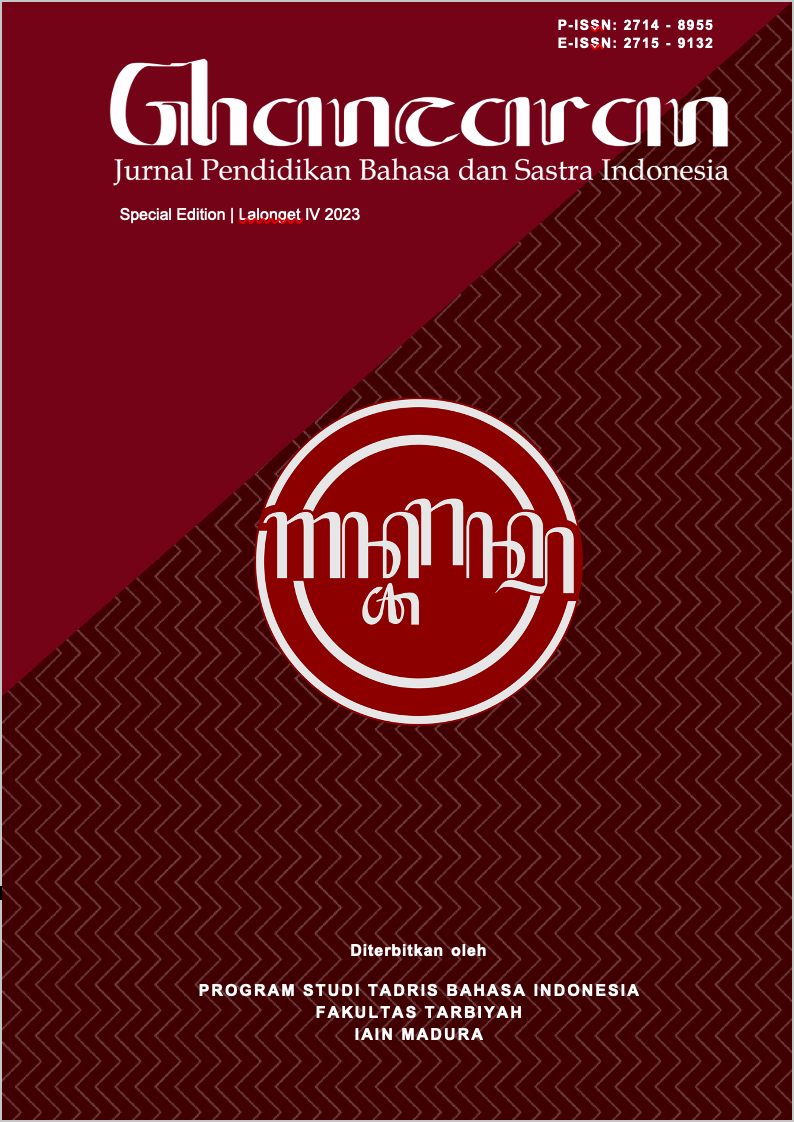Transformasi Pendidikan Pancasila dan Kewarganegaraan (PPKn) Melalui Integrasi Teknologi
 Abstract views: 523
,
Abstract views: 523
,
 PDF downloads: 643
PDF downloads: 643
Abstract
Education is the main and superior investment in a country's civilization. Thus, education throughout the world always experiences different trens. According to the Ministry of Education and Culture 2020, there are 4 trens that need to be taken into account, one of which is technological progress. Pancasila and Citizenship education as one of the important subjects in schools is also experiencing changes in learning by using Artificial Intelligence (AI). The purpose of this article is that PPKn educators care more about technological developments that help them to achieve better learning, as well as understand the educational policies that are being implemented. The methods used are lecture, question and answer, and presentation methods. The findings are: Many teachers do not understand the integration of AI in Civics learning. Conclusion: There is still a need for activities that strengthen teachers to understand how to use artificial technology in Civics learning.
Downloads
References
Al Muchtar, S. (2015). Dasar penelitian kualitatif. Bandung: Pustaka Mandiri.
Chassignol M., Khoroshavin A., Klimova, A., & Bilyatdinova, A. 2018. Artificial Intellegence Trens In Education: A Narrative Overview. Procedia Computer Science, 136: 16 - 24.
Halim C., & Prasetya, H. 2018. Penerapan Artificial Intellegence dalam Computer Aided Instructure (CAI). Jurnal Sistem Cerdas, 1(1): 50-57.
Holmes W., Bialik M., & Fadel, C. 2019. Artificial Intellegence in Education. Boston: Center For Curriculum Redesign.
Khaiyyirah, B. (2013). Cara membuat materi presentasi &cara mempresentasikannya; ala tokoh-tokoh hebat. Jakarta : FlashBooks
Kaelan. (2013). Negara kebangsaan pancasila. Yogyakarta: Paradigma
Kurnia, F. 2023. Artificial Intelligence:Pengertian, Contoh, dan Tantangannya. https://dailysocial.id/post/artificial-intelligence (Diakses pada 25 November 2023)
Liao Y., Loures E., Deschamp F., Brezinsky, G., & Venancio, A. 2018. The Impact of The Fourth Industrial revolution: A Cross-Country/Region Comparison. Production, 28.
Muhhamad, A. 2023. Pengertian dan Contoh Artificial Intelligence (AI) https://www.niagahoster.co.id/blog/artificial-intelligence-adalah/ (Diakses pada 25 November 2023)
Nur’aeni, N.,Gaffar, M.A., & Jayadiputra, E. (2014). Model pembelajaran Pendidikan Kewarganegaraan: teori dan aplikasi. Bandung: Pustaka Aura Semesta.
Putikadyanto, A. P. A., Wachidah, L. R., Aliyah, I. F., Herawati, S. H., & Abrori, M. (2022). Perubahan Perilaku Siswa dalam Pembelajaran Tatap Muka di Kelas Pascapandemi: Potret Pembelajaran di Awal Era Merdeka Belajar. GHANCARAN: Jurnal Pendidikan Bahasa dan Sastra Indonesia, 1-13.
Setyawan, S. (2013). Nyalakan kelasmu 20 metode mengajar dan aplikasinya. Jakarta: Gramedia
Supardan, D. (2015). Pembelajaran Ilmu Pengetahuan Sosial: Perspektif Filosofi Dan Kurikulum. Jakarta: Bumi Aksara
Silvia. 2021. 10 Contoh Artificial Intelligence (AI) Dalam Kehidupan Sehari-hari. https://www.jetorbit.com/blog/10-contoh-artificial-intelligence-ai-dalam-kehidupan-sehari-hari/ (Diakses pada 25 November 2023)
Zamahsari, G. K., Putikadyanto, A. P. A., & Maulana, F. I. (2020). The Contribution of Assessment Platform Technology to Promote Teacher’s Work in Schools. In 2020 6th International Conference on Interactive Digital Media (ICIDM) (pp. 1-5). IEEE.
Copyright (c) 2023 GHANCARAN: Jurnal Pendidikan Bahasa dan Sastra Indonesia

This work is licensed under a Creative Commons Attribution-ShareAlike 4.0 International License.
Ghancaran: Jurnal Pendidikan Bahasa dan Sastra Indonesia uses an Open Access Policy under the Creative Commons Attribution-ShareAlike 4.0 International License. Authors publishing in this journal agree to the following terms:
- Ghancaran Journal holds the copyright and grants the journal rights for first publication with the work simultaneously licensed under a

The work is distributed under Creative Commons Attribution-ShareAlike 4.0 International License which allows others to share, copy, and redistribute the material in any media or format and adapt, remix, change, and develop the material even for commercial purposes, as long as it is stated credit and license derivative works under similar terms. - Authors may make additional contractual arrangements for non-exclusive distribution of the journal's published work version.
- Authors are permitted to post their work online (e.g., in institutional repositories or on their websites) before and during submission, as doing so may lead to productive exchange.



















